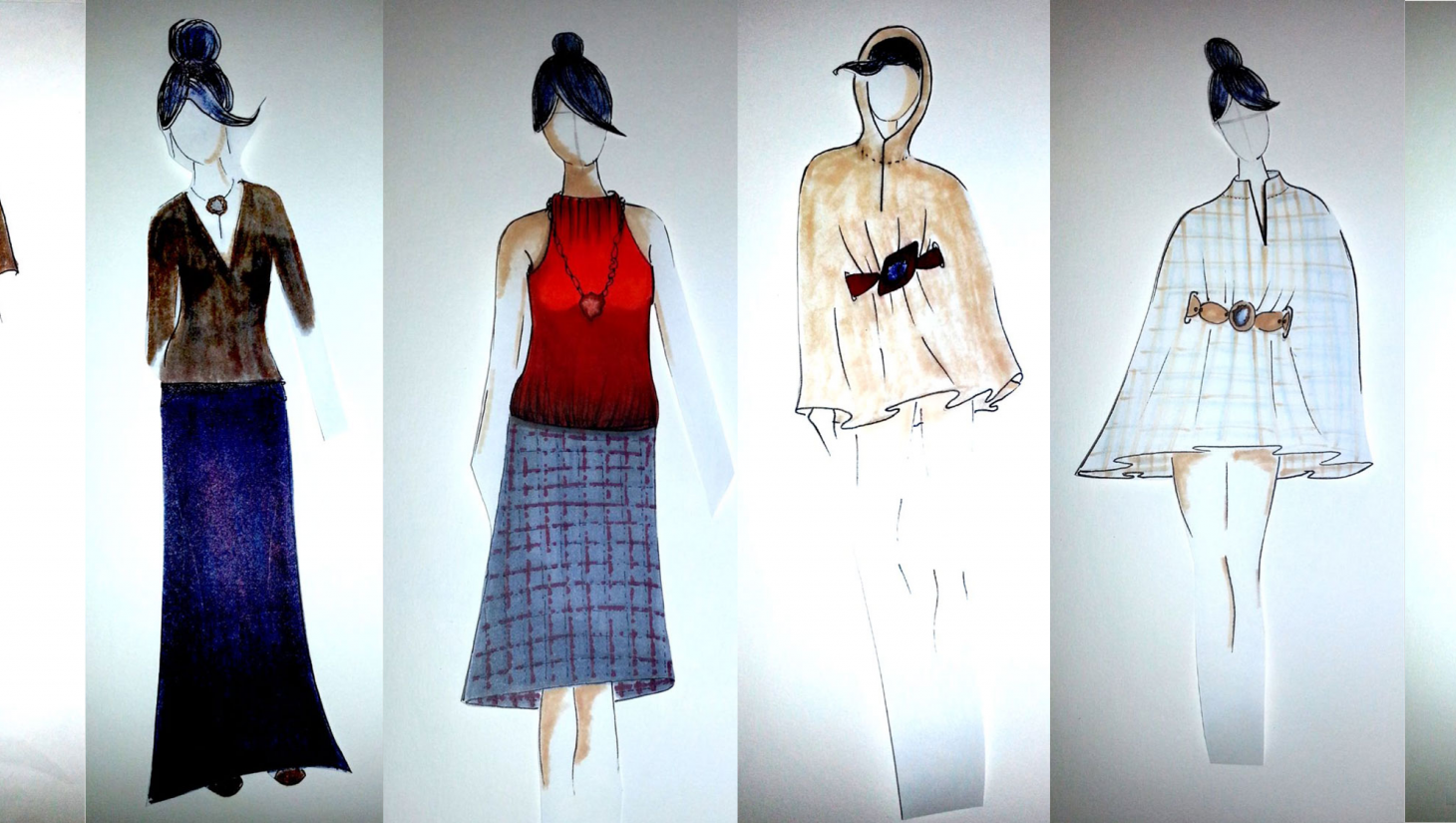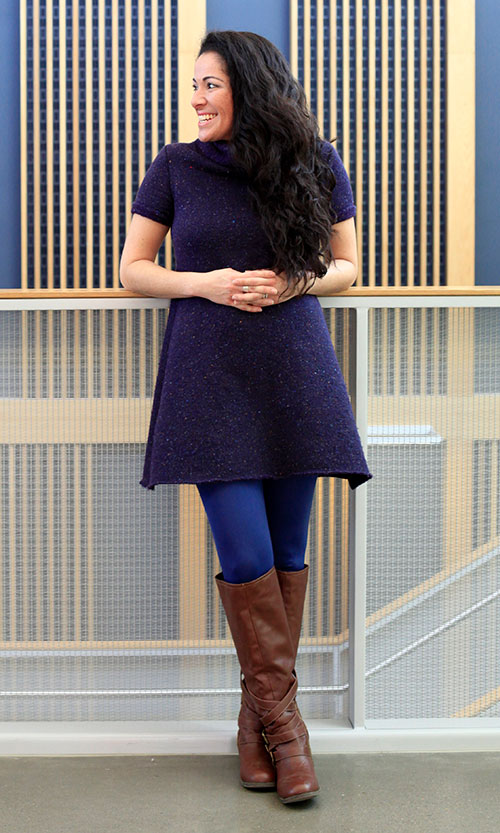News, articles, and interesting stuff from the College of Business
Business Patterns for the Fashion World
Venezuelan fashion designer, Anielis Raas Lozada, Innovation Management MBA, is building a business plan to launch her brand in a world where the “fast fashion” model currently is the reigning theory for success.

If breaking out and making your mark in the fickle world of fashion isn’t hard enough, what about having a value system that is seemingly at odds with the industry itself?
That is the dilemma of Venezuelan fashion designer Anielis Raas Lozada, an Innovation Management MBA student. She is building a business plan to launch her brand in a world where the “fast fashion” model currently is the reigning theory for success.
Fast fashion is de rigueur for leading brands such as H&M or Zara, and it embraces a very swift delivery of catwalk concepts into the shopping baskets of consumers. Manufacturing is quick and inexpensive, and prices are low. Consumers wear the latest trends, dispose of them, and buy more for the next season.
“I think the fast-fashion model is a very damaging thing that has happened to the fashion industry,” Raas said. “It’s great that this person or that company is making a lot of money, and I am still thinking about how I will make a different business model. But my values are clear. I want to see if I can offer something else, and see if I can drive change a little bit more.”

Referencing groups like Fair Trade, which protects workers’ rights, and the Higg Index that tracks and scores brands and retailer sustainability, Raas sees an opportunity for clean label clothing and a sustainable supply chain. She cites the outdoor apparel industry and Patagonia, a leader in the sustainable clothing model, as an example of change-makers. However, she cautions that they are not the fashion industry.
Raas points out three main problems within the fashion industry that she’d like to address: how the industry portrays women, the environmental impact of the supply chain, and the treatment of workers at the manufacturing sites.
She says the fashion industry still has unrealistic expectations of body types, and needs more diversity. She sees a supply chain that relies too much on synthetic fibers and that overuses chemicals and pesticides in the production of natural fibers. And a manufacturing cycle where workers are sometimes mistreated in the quest for quick designs and low costs.
“We are very forgiving of fashion despite all of these things,” Raas said. “Everything becomes disposable; from the people to the clothing. Consumers say they don’t have another option, they just purchase what is out there. I don’t think that we should be so forgiving.”
She also credits her MBA program with providing the tools and processes to address her new vision.
Raas, who also completed her undergraduate degree in Merchandising Management with a minor in Business and Entrepreneurship at Oregon State, once saw herself operating a small, hip storefront in Portland. She actually opened a shop in a basement location in downtown Corvallis ― that was what she could afford ― but the store did not work out.
“I had some very different ideas about how this all worked,” Raas said. “I realized that I needed a little more strategy. It is okay to be free in the creative process, but from a business standpoint you need strategy to sustain passion.”
When Raas started her MBA program, the little shop in Portland was still part of the vision, but that, too, has changed. Business school required her to think in a very different way. For a creative and dynamic person, a women who packed up the car with her sewing machine, fabrics and materials, and headed toward Oregon before she even received an offer letter, Raas is embracing a new perspective.
“Because of my MBA program, I am more focused on developing a brand and the message I want to put behind this brand,” Raas said. “I have started to think about my brand more widely, it’s not just one tiny person who has a little shop. Now I can see that there’s so much more that I can do and possibly change.”
And, indeed, she seeks to innovate the business model ― the struggling paradigm of retail as well as the waste and excesses of fast fashion. “I know it’s a lot,” she says, laughing. “But is there really a point on following a business model that is currently undergoing a profound transformation?”